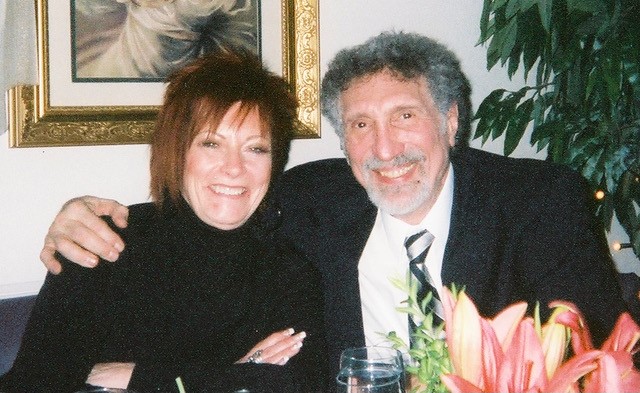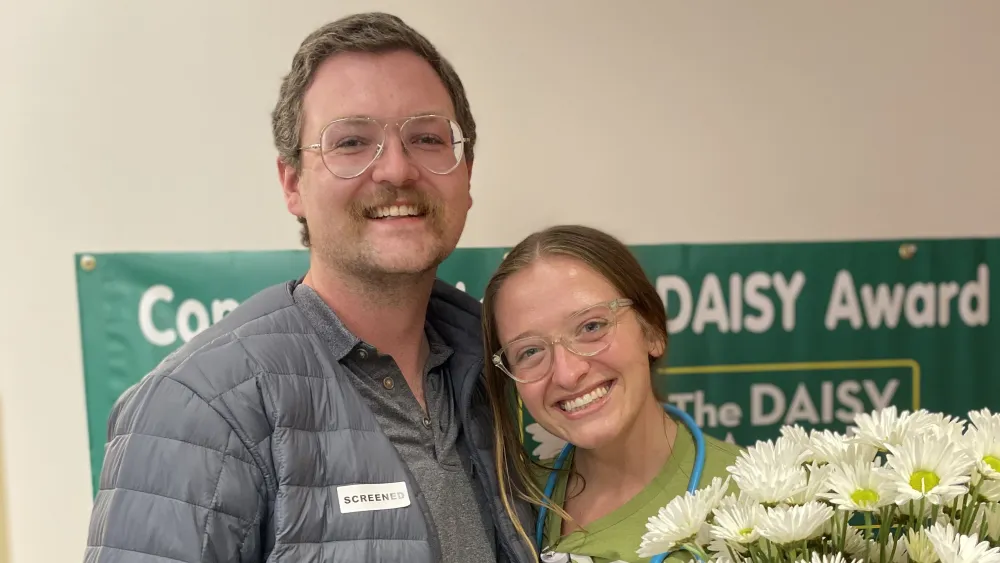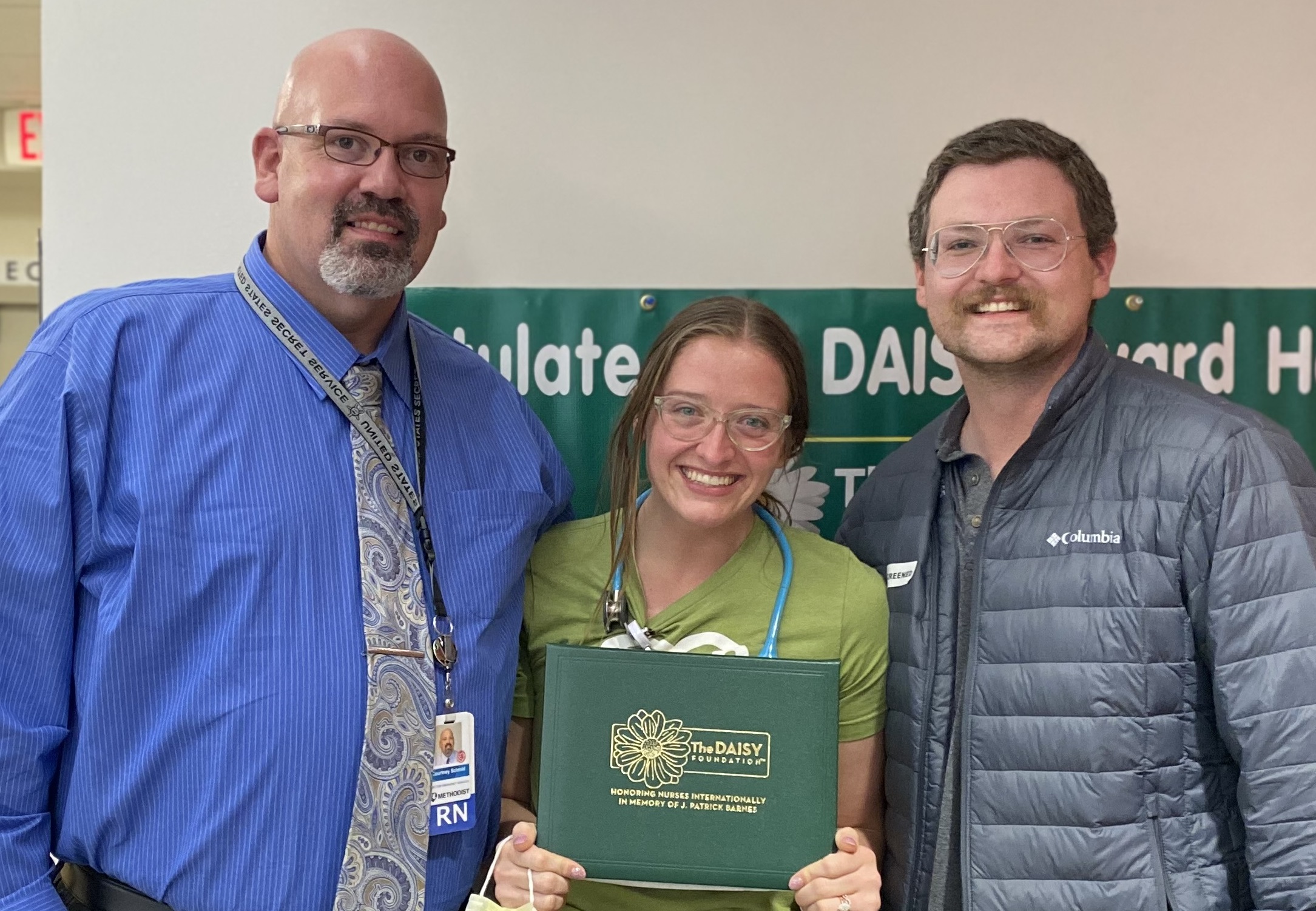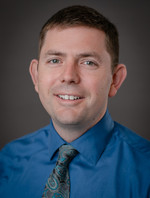





Inspiring Stories
‘She’s One in a Million’: Methodist Fremont Health Nurse Gave Compassionate Care in Man’s Final Moments
Published: April 27, 2021

It had been a busy, stressful shift for Kaylie Schmid, BSN, RN, when she was summoned to the hallway on Methodist Fremont Health Hospital’s intensive care unit (ICU).
“I thought, ‘Gosh dang it. Now what? What happened?” Schmid thought.
First she saw a group of coworkers. Then she spotted her husband, Ryan, and father-in-law, Courtney Schmid, MSN, RN, director of emergency services at Methodist Jennie Edmundson Hospital. A moment later, she saw a sign for The DAISY Award, which honors extraordinary skill and compassion in nursing, and she put the pieces together.
“It was a very big surprise,” she said. “I cried pretty quickly.”
Then she heard the award’s nomination read aloud.
“When I found out the actual story and who nominated me … I’ve never forgotten that patient,” Schmid said. “That has been a day that specifically stood out to me.”

Devotion to Care
Benjamin Graber, MD, was always one to stay busy. In the late 1960s, the physician’s work included establishing free clinics on the west coast. He went back to medical school and completed a residency in psychiatry in Wisconsin. He received an invitation from the University of Nebraska Medical School to become a professor of psychiatry and received tenure. After his work in academia, he went into private practice in Omaha and was devoted to his patients’ well-being.
“He was just carefree and wanted to help people,” said his wife, Cindie, who helped manage his practice. “I fell in love with him for his intelligence and the soul that he was with people from any walk of life. That was the attraction.”
Dr. Graber retired in 1998, but he didn’t slow down. He earned a master’s in theater from the University of Nebraska Omaha and another master’s in theater and playwriting from Spalding University in Louisville, Kentucky. When he wasn’t writing plays, he was a voracious reader – sometimes finishing two or three paperbacks in a day.
But in recent years, he’d been diagnosed with Alzheimer’s disease. And when the Grabers both became ill with COVID-19 last fall, it hit Dr. Graber particularly hard. While Cindie was recovering in quarantine, it was soon clear that her husband needed more specialized care.
He was taken to Methodist Fremont Health. Among the members of his care team was Schmid.
Patience and Respect
The ICU staff worked for two weeks to help Dr. Graber battle COVID-19, updating Cindie along the way. It was often Schmid sharing the latest with the Graber family.
“My son would call and chat with her, and it went on for several days,” Cindie said. “Kaylie was just incredibly patient and, I mean, I don’t know how you do it when you work in ICU with all these really, really sick patients.”
Dr. Graber’s Alzheimer’s symptoms added to the staff’s challenge, but he was aware of where he was. He and Cindie even discussed his worsening condition. He also joked with his wife about how the staff called him “doctor” out of respect.
“It just made me feel good that someone called him Dr. Graber because it hadn’t been like that for a long time,” she said. “It was touching. It really was.”
As the days went on, there were few reasons for optimism. Dr. Graber became dependent on additional oxygen, and he couldn’t grasp how important it was to eat and keep his strength up.
Fifteen days into her husband’s hospital stay, Cindie knew what was coming.
“I Will Take Care of Him for You”
On Oct. 31, as Cindie was visiting her husband, she knew something was different. Before she arrived, Dr. Graber had requested medication to ease the pain he felt while breathing. His medication was increased as the day went on. With evening coming, Cindie wondered whether to go home.
“She was very stressed about leaving, and I could see it on her,” Schmid said. “I told her, ‘Tell him goodbye now, when he’s here and with us and can tell you goodbye back.’ I think I just helped her feel not guilty. He wasn’t going to be alone, and I think that’s what she was mainly worried about.”
Cindie recalled: “She hugged me, and she looked me straight in the eye and said, ‘I will take care of him for you.’ She said, ‘People deal with death in all sorts of different ways, and none of it is wrong.’”
Then Cindie and her husband of 38 years spent their final moments together.
“We went through our life and the different things we had accomplished. It was a good life. He was pretty much prepared.”
As Cindie left her husband for the last time, Schmid stayed by his side. Before Cindie arrived home, he had slipped away. Schmid immediately called Cindie to let her know, and that she had stayed by his side.
“She told me she prayed with him. And she played classical music for him. And he just kind of went into the sleep that you’re supposed to,” Cindie said. “My heart, I couldn’t believe a person would go in there and close the blinds and be with a patient like that. It was just beyond what you would ever expect out of a nurse because they’re so busy, and they were so busy up there at that time. I wanted to do something.”

Honoring a Job Well Done
In the weeks following her husband’s death, Cindie kept thinking about the care Schmid provided for him and her family. She decided to write a letter to hospital leadership commending Schmid for her extraordinary care.
That letter led to Schmid’s coworkers coaxing her into the hallway during a busy shift recently. When she heard Cindie’s letter read aloud, she immediately remembered her family, the tough moments and her final moments with Dr. Graber.
Schmid said The DAISY Award affirms that she’s where she needs to be.
“Making patients feel loved and cared for, and their families, isn’t that why we’re nurses to begin with?” she said. “That makes me feel good.”
Cindie didn’t attend the ceremony because she was getting a COVID-19 vaccination, and she’s not sure she would have gone anyway. The spotlight belongs to Schmid, she said, and knowing she was honored meant the world to her.
“Kaylie was all in,” Cindie said. “It wasn’t just a front. I don’t think you find very many people today like her. She’s one in a million.”
More Resources
- Nominate a Methodist nurse for The DAISY Award today.
- Learn more about The DAISY Foundation.
- Read more inspiring stories of Methodist patients and staff.
- Read more articles related to COVID-19.


